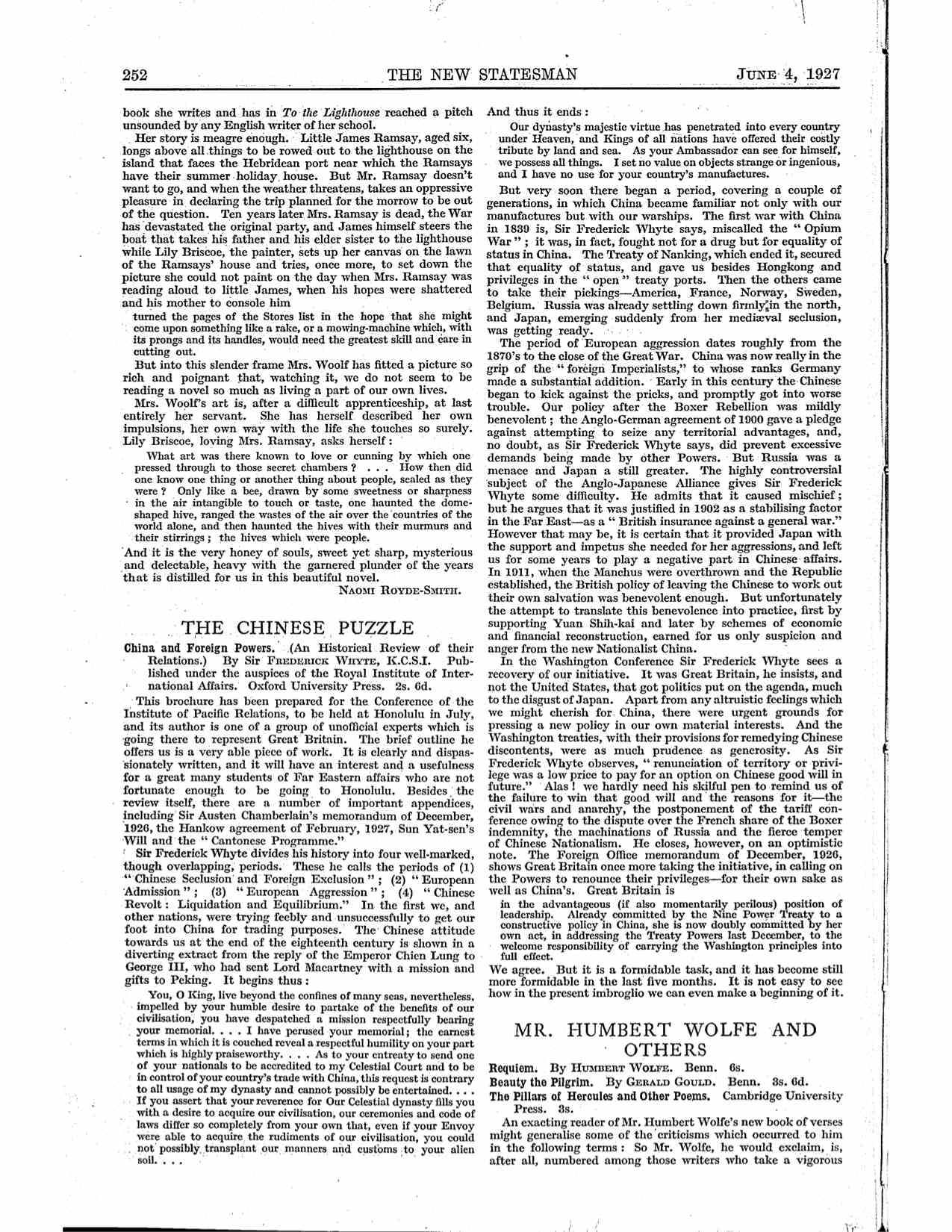
[next page, first column]
book she writes and has in To the Lighthouse reached a pitch
unsounded by any English writer of her school.
Her story is meagre enough. Little James Ramsay, aged six,
longs above all things to be rowed out to the lighthouse on the
island that faces the Hebridean port near which the Ramsays
have their summer holiday house. But Mr. Ramsay doesn’t
want to go, and when the weather threatens, takes an oppressive
pleasure in declaring the trip planned for the morrow to be out
of the question. Ten years later Mrs. Ramsay is dead, the War
has devastated the original party, and James himself steers the
boat that takes his father and his elder sister to the lighthouse
while Lily Briscoe, the painter, sets up her canvas on the lawn
of the Ramsays’ house and tries, once more, to set down the
picture she could not paint on the day when Mrs. Ramsay was
reading aloud to little James, when his hopes were shattered
and his mother to console him
turned the pages of the Stores list in the hope that she might
come upon something like a rake, or a mowing-machine which, with
its prongs and its handles, would need the greatest skill and care in
cutting out.
But into this slender frame Mrs. Woolf has fitted a picture so
rich and poignant that, watching it, we do not seem to be
reading a novel so much as living a part of our own lives.
Mrs. Woolf’s art is, after a difficult apprenticeship, at last
entirely her servant. She has herself described her own
impulsions, her own way with the life she touches so surely.
Lily Briscoe, loving Mrs. Ramsay, asks herself:
What art was there known to love or cunning by which one
pressed through to those secret chambers? . . . How then did
one know one thing or another thing about people, sealed as they
were? Only like a bee, drawn by some sweetness or sharpness
in the air intangible to touch or taste, one haunted the dome-
shaped hive, ranged the wastes of the air over the countries of the
world alone, and then haunted the hives with their murmurs and
their stirrings; the hives which were people.
And it is the very honey of souls, sweet yet sharp, mysterious
and delectable, heavy with the garnered plunder of the years
that is distilled for us in this beautiful novel.
NAOMI ROYDE-SMITH.






